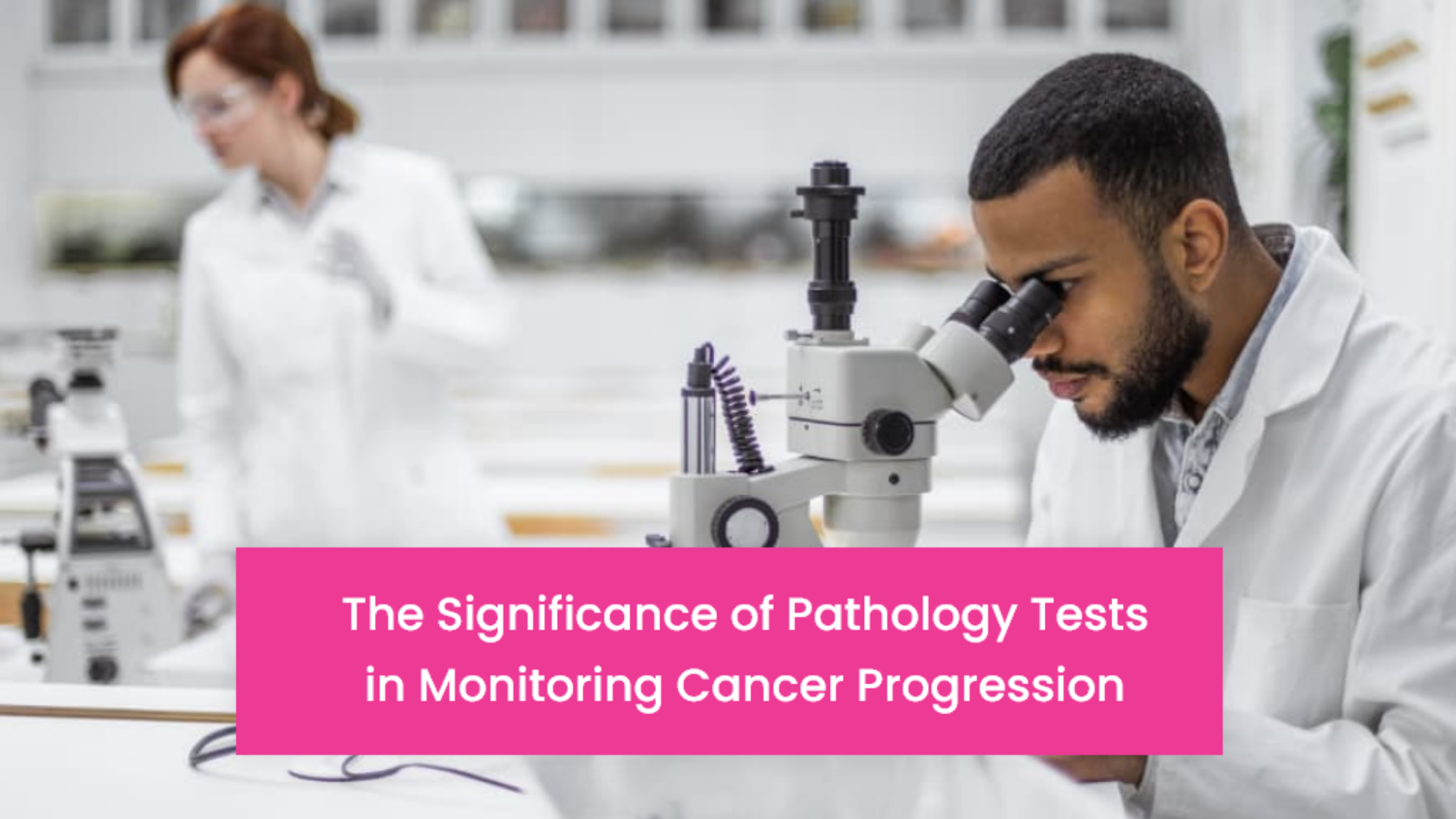The significance of pathology tests in monitoring cancer progression cannot be overstated. They provide essential insights into the tumor’s characteristics, behavior, and response to treatment. Moreover, advances in technology have given rise to more sophisticated pathology tests, such as molecular testing and liquid biopsies.
Most common tests that can be used to monitor cancer progression:
Imaging Tests:
- CT Scan: Uses X-rays to create cross-sectional images, helpful in detecting tumour growth and metastasis.
- MRI: Utilises strong magnets and radio waves to produce detailed images, aiding in evaluating tumour growth and invasion into nearby tissues.
- PET Scan: Employs a radioactive tracer to identify areas with high metabolic activity, indicating potential cancerous cells or metastases.
- Ultrasound: Uses sound waves to produce real-time images, useful in monitoring certain cancers like breast or liver cancer.
Blood Tests:
- Complete Blood Count (CBC): Measures blood cell types, helping identify abnormalities that could indicate the presence of cancer or treatment side effects.
- Tumour Markers: Detects specific proteins or substances released by cancer cells in the blood, allowing monitoring of cancer activity and treatment response.
Biopsy and Tissue Analysis:
- Tissue Biopsies: Remain the gold standard for diagnosing and monitoring cancer. Repeated biopsies assess changes in tumour characteristics, guiding treatment adjustments.
Molecular Testing:
- Polymerase Chain Reaction (PCR): Amplifies specific DNA segments, identifying genetic mutations or abnormalities in cancer cells that impact treatment decisions.
- Next-Generation Sequencing (NGS): Provides comprehensive genetic analysis of cancer cells, aiding in personalised treatment approaches.
The role of pathology tests in predicting prognosis:
- Tumour Type and Grade: Pathology tests, particularly from tissue biopsies, identify the specific type of cancer and its grade. Tumour grade indicates how abnormal the cancer cells appear under the microscope and their growth rate. Higher-grade tumours tend to grow more quickly and are associated with a poorer prognosis compared to lower-grade tumours.
- Cancer Stage: Staging is a critical aspect of cancer prognosis. It determines the extent to which cancer has spread from its original site to other parts of the body. Pathology tests, along with imaging studies, help determine the cancer stage, which has a significant impact on treatment decisions and overall prognosis. Early-stage cancers generally have better prognosis compared to advanced-stage cancers.
- Lymph Node Involvement: Pathology tests can reveal whether cancer has spread to nearby lymph nodes. Lymph node involvement is a crucial factor in determining the likelihood of cancer metastasis and, consequently, the patient’s prognosis.
- Molecular and Genetic Markers: Advanced pathology tests, such as molecular testing and genetic analysis, identify specific mutations and genetic markers present in cancer cells. These markers can provide valuable information about tumour aggressiveness, response to certain treatments, and the potential for targeted therapies. Patients with specific genetic alterations associated with more favourable responses to treatments may have a better prognosis.
- Treatment Response Monitoring: During the course of treatment, repeated pathology tests, like biopsies, can assess how well the cancer is responding to therapy. A positive response to treatment may suggest a more favourable prognosis, while treatment resistance might warrant a change in the treatment plan.
- Predictive Biomarkers: Pathology tests may identify specific biomarkers in cancer cells that predict treatment response. For instance, the presence of certain receptors in breast cancer cells, such as oestrogen and progesterone receptors, can indicate the potential effectiveness of hormone therapy.
Pathology tests are an essential part of monitoring cancer progression. These tests can help doctors to make informed decisions about treatment and to track the effectiveness of treatment. As technology continues to advance, pathology tests will undoubtedly continue to evolve, leading us ever closer to more effective cancer treatments and improved patient outcomes.


